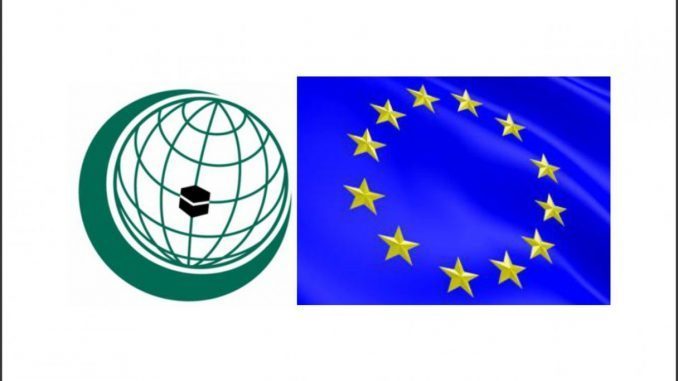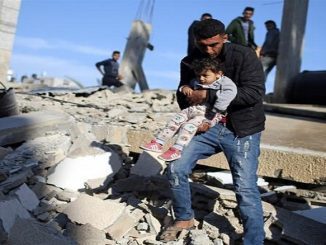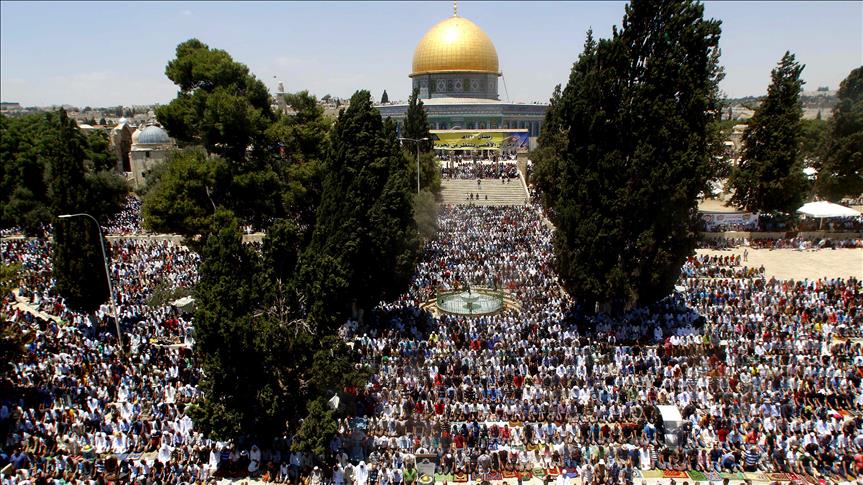
The European Union said the new U.S. peace plan for the Middle East broke with “internationally agreed parameters”, and any Israeli annexation of Palestinian land would be subject to challenge. Meanwhile, the Organization of Islamic Cooperation (OIC) said in a statement that it “calls on all member states not to engage with this plan or to cooperate with the US administration in implementing it in any form.
U.S. President Donald Trump’s plan, announced last week, was warmly welcomed by Israel and rejected outright by the Palestinians. It would give Israel most of what it has sought during decades of conflict, including nearly all Palestinian land on which it has built settlements.
The EU, which often takes time to respond to international developments because of a need for unanimity among its 27 members, had said last week that it needed to study the Trump plan before it would give its verdict.
It made its conclusions public on Tuesday in a statement from EU foreign policy chief Joseph Borrell.
“To build a just and lasting peace, the unresolved final status issues must be decided through direct negotiations between both parties,” Borrell said, noting the issues of the borders of a Palestinian state and the final status of Jerusalem were among those still in dispute.
“The U.S. initiative, as presented on 28 January, departs from these internationally agreed parameters,” Borrell said.
Steps by Israel to annex Palestinian territory, “if implemented, could not pass unchallenged,” Borrell said.
EU policy in the Middle East tends to be cautious, as the bloc includes members with varying degrees of sympathy towards the Palestinians and Israel. Some EU members have already recognized a Palestinian state, although the bloc as a whole says this is a matter to be resolved in peace talks.
The EU condemned Trump’s decision in 2017 to recognize Jerusalem as Israel’s capital, saying Washington had compromised its position as a mediator for peace.
OIC rejects Trump peace plan
In the same context, the Organization of Islamic Cooperation (OIC) has said it rejects US President Donald Trump ‘s recently unveiled Middle East plan.
The 57-member body, which held a summit on Monday to discuss the plan in Saudi Arabia’s Jeddah, said in a statement that it “calls on all member states not to engage with this plan or to cooperate with the US administration in implementing it in any form”.
Requested by the Palestinian leadership, the meeting of the body came two days after the Arab League rejected Trump’s so-called “deal of the century”, saying: “It does not meet the minimum rights and aspirations of Palestinian people.”
Addressing a pro-Israel audience at the White House with Israeli Prime Minister Benjamin Netanyahu by his side, Trump on Tuesday described his long-delayed plan for resolving the Israeli-Palestinian conflict as a “win-win solution” for both sides.
The US president said his proposed deal would ensure the establishment of a two-state solution, promising Palestinians a state of their own with a new capital in Abu Dis, a suburb just outside Jerusalem. Trump also said Jerusalem would be the “undivided capital” of Israel. The Palestinians want both occupied East Jerusalem and the West Bank to be part of a future state.
Palestinian leaders, who were absent during the announcement and had rejected the proposal even before its release, denounced the plan as “a new Balfour Declaration” that heavily favored Israel and would deny them a viable independent state.
The OIC said in a statement on Twitter on Sunday that its “open-ended executive committee meeting” at the level of foreign ministers would “discuss the organization’s position after the US administration announced its peace plan”.
With member states from four continents, the OIC is the second-largest intergovernmental organization in the world after the United Nations, with a collective population reaching more than 1.8 billion.
The majority of its member states are Muslim-majority countries, while others have significant Muslim populations, including several African and South American countries. While the 22 members of the Arab League are also part of the OIC, the organization has several significant non-Arab member states, including Turkey, Iran and Pakistan. It also has five observer members, including Russia and Thailand.
Meanwhile, Iran on Monday accused its regional rival Saudi Arabia of blocking its officials from attending the OIC meeting.
“The government of Saudi Arabia has prevented the participation of the Iranian delegation in the meeting to examine the ‘deal of the century’ plan at the headquarters of the Organization of Islamic Cooperation,” Fars news agency quoted Abbas Mousavi, spokesman for Iran’s foreign ministry, as saying.
Mousavi said Iran – one of the countries to strongly condemn Trump’s plan – had filed a complaint with the OIC and accused its regional rival of misusing its position as the host for the organization’s headquarters.
There was no immediate comment from Saudi officials.
Following the unveiling of Trump’s plan, the Saudi foreign ministry expressed appreciation for Trump’s efforts and support for direct peace negotiations under Washington’s auspices, while state media reported that King Salman had called Palestinian President Mahmoud Abbas to reassure him of Riyadh’s unwavering commitment to the Palestinian cause.
The announcement of Trump’s plan drew mixed responses from Arab states.
Observers said the reaction was indicative of the division among Arab countries and their inability to prioritize the Palestinian people’s plight over domestic economic agendas and political calculations in relation to the Trump administration.



